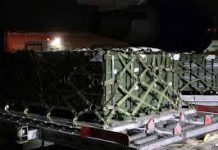
Switzerland has gained approval from the European Union to participate in a multinational cybersecurity defense initiative, according to an announcement this week by the EU Council.
This development paves the way for Switzerland to join the Cyber Ranges Federations project, led by Estonia and operating under the EU’s Permanent Structured Cooperation (PESCO) framework. The move signals a significant step forward in military collaboration between Switzerland and the EU, despite Switzerland’s long-standing stance on armed neutrality.
The Swiss application to join the cybersecurity project was submitted in October of last year, shortly after requesting to participate in a separate initiative focused on improving military mobility. Before Switzerland can officially become part of the Cyber Ranges Federations, two procedural steps remain: Estonia must extend a formal invitation, and an administrative arrangement must be signed to manage technical and legal aspects such as data sharing.
The Swiss government welcomed the EU’s decision, affirming its intention to participate in the PESCO project. In recent years, Switzerland has expanded its national cyber defense capabilities, including the development of its Swiss Cyber Training Range and the establishment of a Cyber-Defence Campus.
The EU’s Cyber Ranges Federations initiative aims to consolidate resources, standardize services, and automate cybersecurity operations among participating nations. This approach reduces manual workloads during training and accelerates the advancement of cybersecurity technologies. Current members include Estonia, Austria, Belgium, Bulgaria, Finland, France, Italy, and Luxembourg.
Under guidelines introduced in 2020, non-EU states may join PESCO projects if they align with EU values and pose no risk to the security of member states. The Council stated that Switzerland fulfills these conditions and brings meaningful contributions to the initiative.
Oversight of non-EU involvement remains under the EU Council, which may revise participation terms to ensure continued alignment with the EU’s defense strategies.
Swiss officials have emphasized that their involvement in such projects remains consistent with the country’s policy of military neutrality. Authorities in Bern described participation as selective and based on mutual interests, with no creation of dependencies that could compromise neutrality.
By engaging in this cybersecurity project, Switzerland gains access to collective expertise and infrastructure while avoiding broader defense commitments. The government stated that involvement would be “selective and based on need.”
This move is part of Switzerland’s broader approach to engage in PESCO initiatives that support its defense priorities without undermining its neutral status.
Earlier this year, Switzerland was also approved to join an EU-led military mobility project following an application in September 2024. That initiative aims to streamline cross-border military transport procedures within the EU, enhancing the rapid deployment of troops and equipment by land, sea, rail, or air. Other non-EU countries involved include the UK, Norway, the US, and Canada.
Switzerland has also participated in NATO’s Partnership for Peace program since the 1990s, as has Austria, another neutral nation.
However, these international collaborations have sparked criticism from neutrality advocates, particularly after Russia’s 2022 invasion of Ukraine. Last year, a Swiss civil movement collected over 130,000 valid signatures to push for a referendum aimed at reinforcing Switzerland’s traditional neutrality. Organizers of the initiative argue that increased defense cooperation with international partners risks weakening the country’s neutral stance.





